
Difficult fishing season
In Dien Bien district, in recent months, many households raising fish in ponds have been restless because of the fear of drought. Mr. Dinh Van Son's family, Viet Thanh 4 village, Thanh Chan commune (Dien Bien district) has been raising fish for decades. However, the drought has caused most of his family's fish ponds to dry up. Lack of water, lack of oxygen, while not daring to feed (for fear of excess food polluting the water) has led to mass fish deaths, causing significant economic losses for his family.
Mr. Dinh Van Son shared: “My family has 7 fish ponds, with a total water surface area of about 5,000m2, mainly raising grass carp, bighead carp, and tilapia. However, since the beginning of the year, prolonged hot weather and little rain have caused 6/7 of my family's fish ponds to dry up, and the remaining pond is also approaching dead water level. In previous years, at this time, my family sold hundreds of tons of fish for the new crop, but this year there are no fish left to sell. The hot weather and drought have caused all the fish to die.”
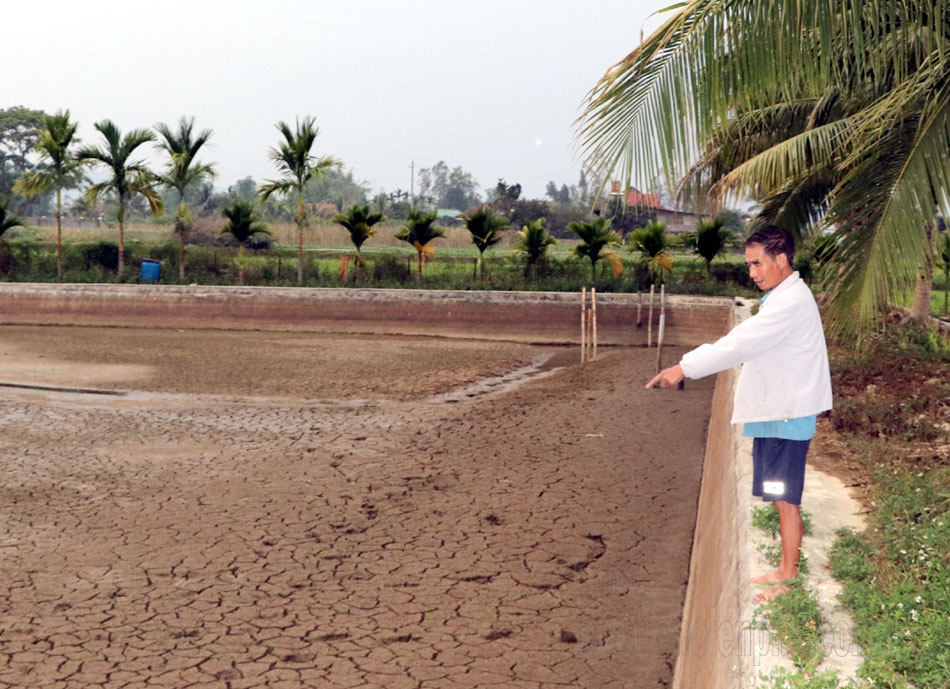
Similarly, the family of Mr. Tran Van Yen, Hong Thanh 7 village, Thanh Chan commune is one of the largest fish and meat fish farming households (mainly fingerlings) in Thanh Chan commune, which has suffered heavy losses due to heat and drought. Currently, his family has 6 fish ponds, including 1 for meat fish, 1 for broodstock fish, and the rest for fingerlings, with a total water surface area of over 11,000m2 . Despite having 38 years of experience in fish farming, this year's drought has caused his family hundreds of millions of dong in losses.
According to Mr. Tran Van Yen, the water level in the pond has never been as low as this year. Most of the fish ponds for raising fingerlings have dried up, and the ponds with water are 1 meter deeper than last year and approaching the dead water level. Although medicine has been used and aeration has been continuous, due to the small amount of water, and dirty water (due to lack of circulation), there is not enough oxygen to supply the fish, so since the beginning of the year, fish have been dying continuously, including one pond with more than 300 kg of fingerlings.
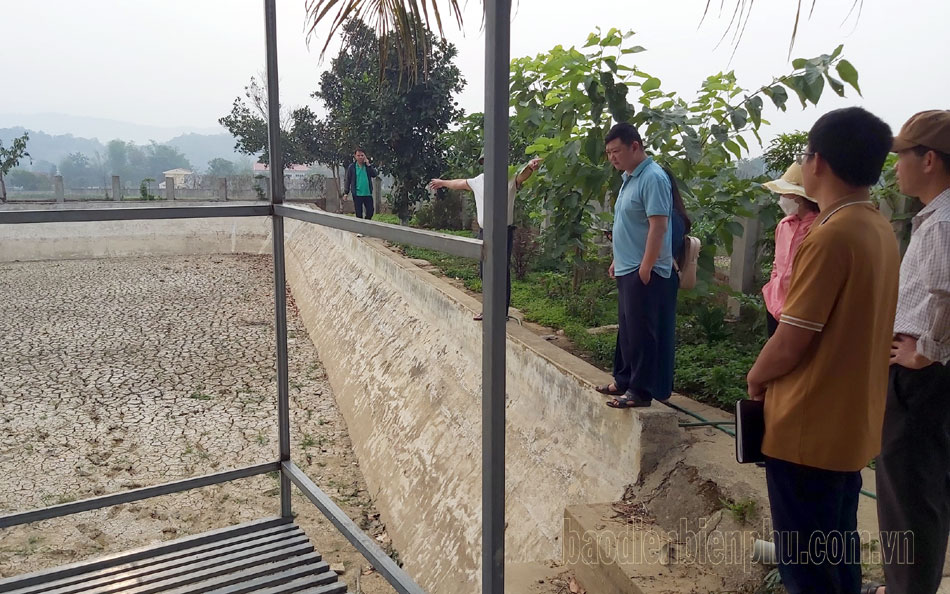
The hot weather also has a significant impact on fish farming models according to project programs. Typically, the black carp farming model was implemented by the Provincial Center for Agricultural Extension of Plants and Livestock from April 2023 to December 2024 in Thanh Nua commune, Dien Bien district. The model involved 8 households in Thanh Binh, Na Lom and Hong Lanh villages. The prolonged hot weather caused the water level in the ponds of households participating in the model to drop, causing fish to die, and people had to borrow ponds and pool water from many ponds into one to maintain the fish in the model.
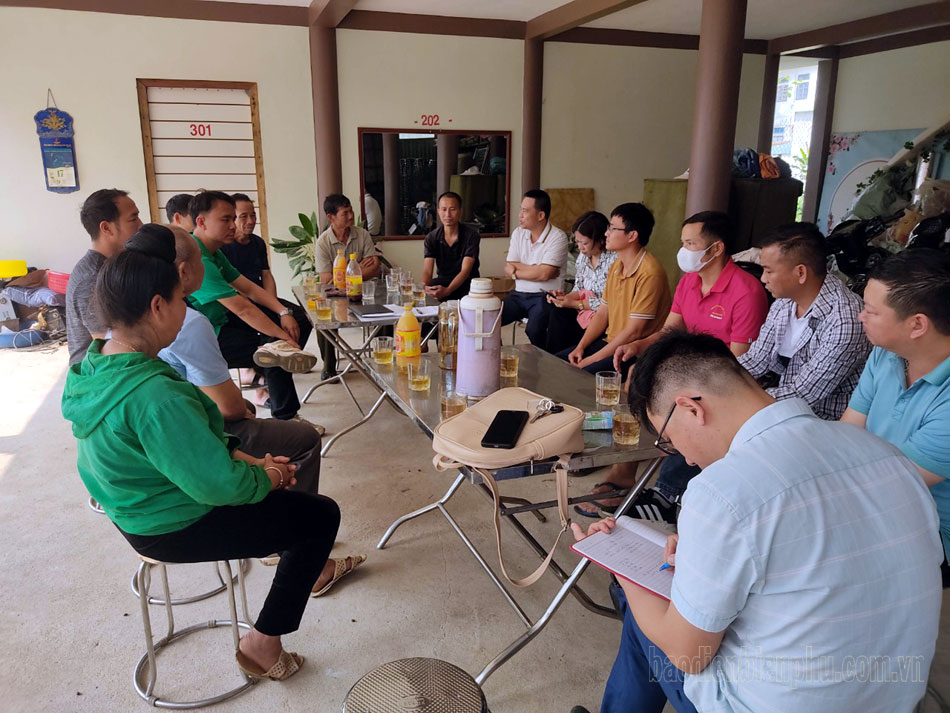
Mr. Tran Trung Kien, a technical officer at the Provincial Center for Agricultural Extension of Plant and Animal Breeds, said: The model will not end until the end of this year, but the recent heat wave has caused 5/8 ponds of households participating in the model in Thanh Binh and Hong Lanh villages to dry up. To maintain the model, people have to consolidate ponds and water. As for the 3 ponds in Na Lom village, although there is still water, it is only about 50cm. The lack of water, combined with nearly a month of people not daring to feed the fish, has caused the fish to die sporadically. In the past few days, there has been rain, but the amount of water is not enough to soak the soil. Although the model will not end until December 2024, in the coming time, if the heat wave continues, the model will have to end sooner.
Coping through the drought
Dien Bien district has more than 622 hectares of water surface for fish farming, with a total output of more than 1,622 tons. Most of these are concentrated in Thanh Chan, Thanh Hung, Thanh Nua, Noong Luong communes... The recent heat wave has caused the water level of rivers, streams, ponds and lakes to dry up; many households raising fish in ponds, especially in the area on the canal from Thanh Nua to Noong Luong, have suffered heavy losses.
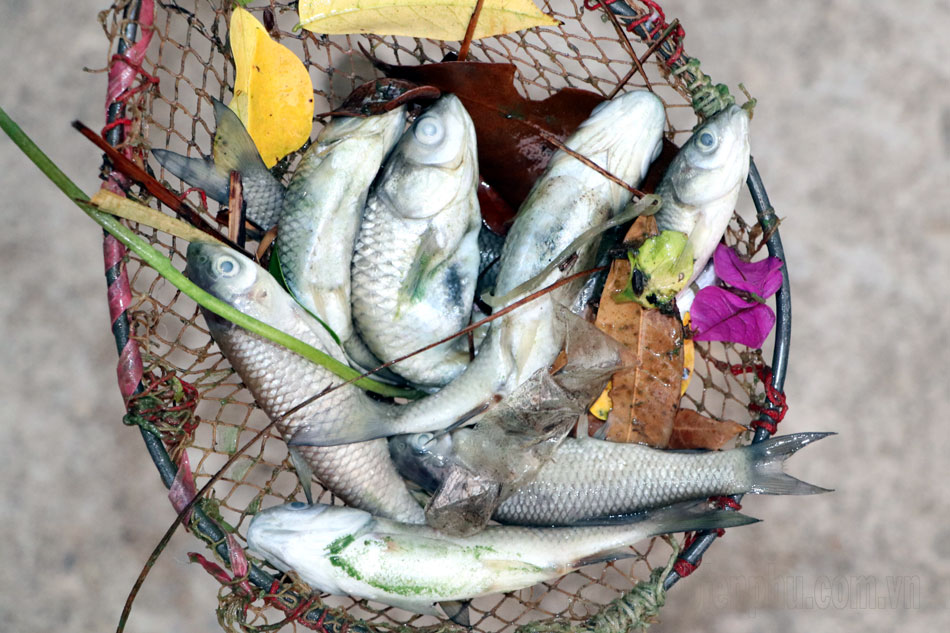
The death of fingerlings has disrupted the plan for fingerling supply for commercial fish farmers in the province. A typical example is the family of Mr. Tran Van Yen, Hong Thanh 7 village, Thanh Chan commune, which supplies an average of 15 tons of meat fish each year and produces 3-5 million fingerlings for the market. But this year, the hot weather has caused almost all of his fingerlings to die, leaving no fish left to supply the market.
Dien Bien district has the largest water surface area for fish breeding in the province. Normally, from May onwards, fish farmers will start releasing fish for breeding. In the current weather conditions, the supply of fish is facing many difficulties, affecting the development of aquaculture in the province; the supply is scarce, and prices may increase if imported from outside the province.
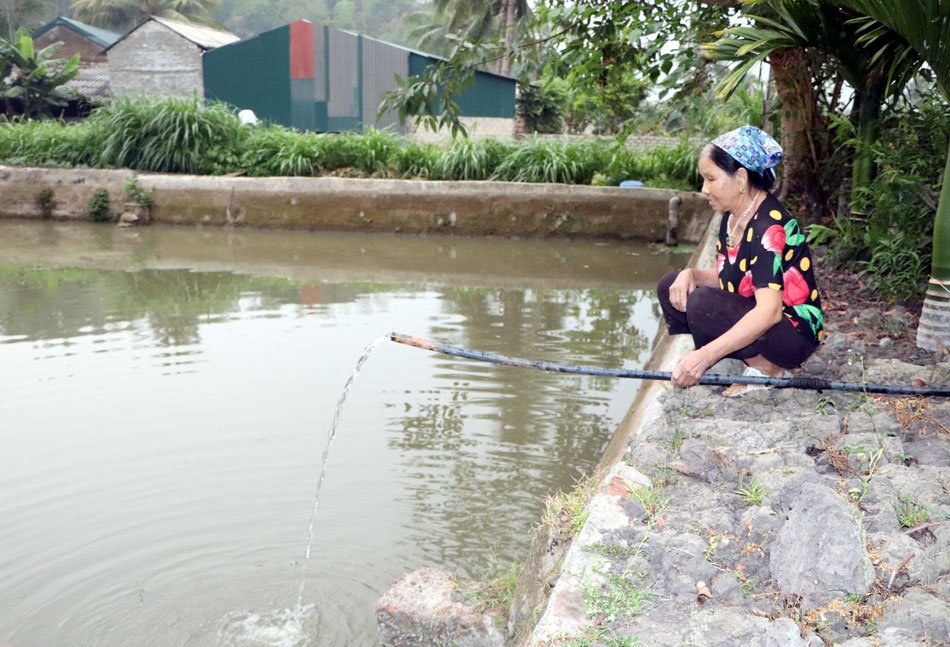
To cope with the drought, many households have proactively pumped well water to supplement their fish ponds. For example, the family of Mrs. Le Minh Lieu, in Viet Thanh 4 village, Thanh Chan commune, has had to pump well water for their fish ponds for more than 2 months to wait for the rain, spending 700,000 - 900,000 VND per month on electricity for pumping water. If it does not rain in the coming days, the well water will dry up.
For commercial fish farmers, to cope with the drought, they have accepted to harvest earlier than the season. Mr. Quang Van Suong's family, team 6, Thanh Chan commune shared: The hot weather has dried up the family's fish pond (the water level is only 30cm). Although the fish are still small, to reduce damage caused by the heat, my family drained the water and harvested earlier than every year. The fish are small so the price is low, but it is better than letting the fish die. After this season, I decided to fill the pond and switch to growing fruit trees.
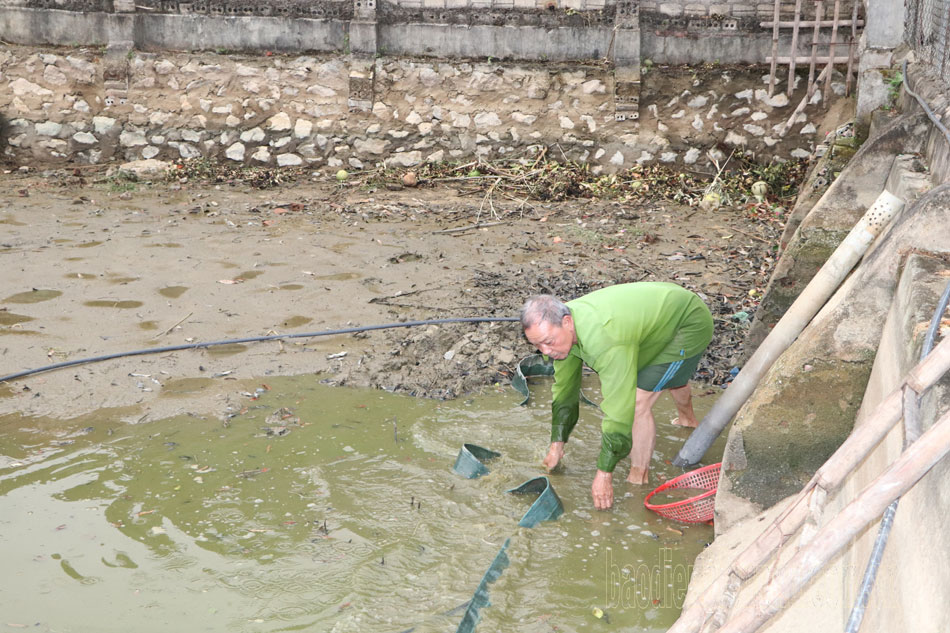
According to Mr. Chu Van Bach, Head of the Department of Agriculture and Rural Development of Dien Bien district: In the past time, the district has directed functional units to synchronously deploy measures to combat drought, minimizing damage to fish farming activities. It is recommended that people should not raise fish in places where water sources are not guaranteed, and that fish be stocked at reasonable densities. As for households raising fish in cages and rafts, they should closely monitor the water level in reservoirs, in order to proactively and promptly relocate the fish to a safe place. If the water source dries up when they are about to be sold, they should harvest early to avoid risks. In addition, in extremely hot conditions, farmers need to coordinate the appropriate amount of food, avoiding excess that pollutes the water source and kills the fish.
Source



![[Photo] General Secretary To Lam attends the conference to review 10 years of implementing Directive No. 05 of the Politburo and evaluate the results of implementing Regulation No. 09 of the Central Public Security Party Committee.](https://vphoto.vietnam.vn/thumb/1200x675/vietnam/resource/IMAGE/2025/5/19/2f44458c655a4403acd7929dbbfa5039)
![[Photo] Panorama of the Opening Ceremony of the 43rd Nhan Dan Newspaper National Table Tennis Championship](https://vphoto.vietnam.vn/thumb/1200x675/vietnam/resource/IMAGE/2025/5/19/5e22950340b941309280448198bcf1d9)

![[Photo] Close-up of Tang Long Bridge, Thu Duc City after repairing rutting](https://vphoto.vietnam.vn/thumb/1200x675/vietnam/resource/IMAGE/2025/5/19/086736d9d11f43198f5bd8d78df9bd41)
![[Photo] President Luong Cuong presents the 40-year Party membership badge to Chief of the Office of the President Le Khanh Hai](https://vphoto.vietnam.vn/thumb/1200x675/vietnam/resource/IMAGE/2025/5/19/a22bc55dd7bf4a2ab7e3958d32282c15)

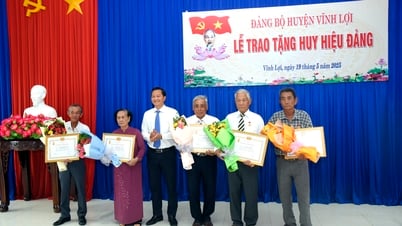
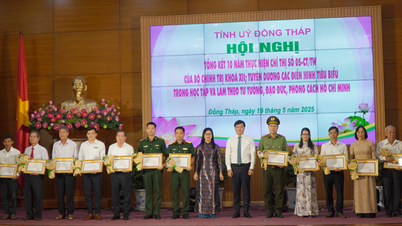
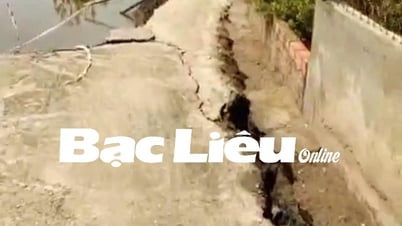

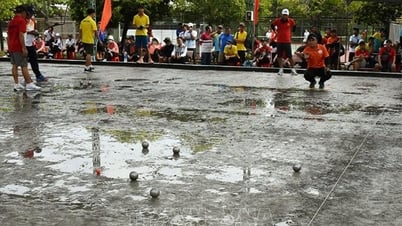
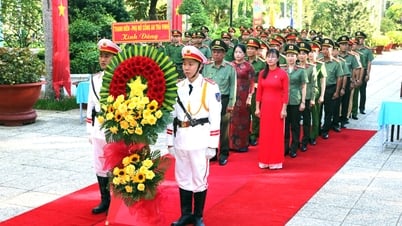










![[Photo] Prime Minister Pham Minh Chinh inspects the progress of the National Exhibition and Fair Center project](https://vphoto.vietnam.vn/thumb/1200x675/vietnam/resource/IMAGE/2025/5/19/35189ac8807140d897ad2b7d2583fbae)









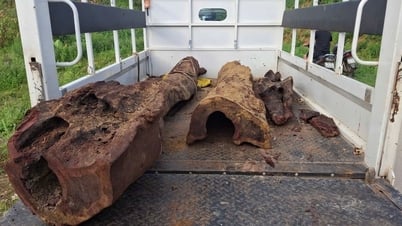









































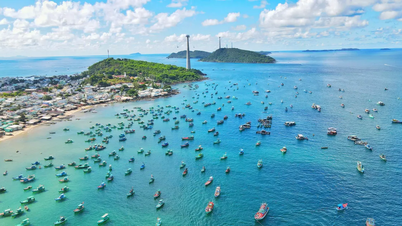









![[VIDEO] - Enhancing the value of Quang Nam OCOP products through trade connections](https://vphoto.vietnam.vn/thumb/402x226/vietnam/resource/IMAGE/2025/5/17/5be5b5fff1f14914986fad159097a677)





Comment (0)